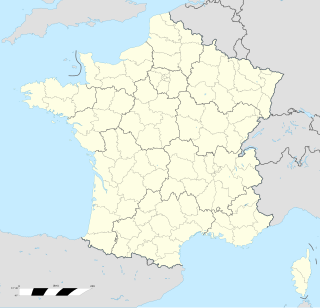This page is based on this
Wikipedia article Text is available under the
CC BY-SA 4.0 license; additional terms may apply.
Images, videos and audio are available under their respective licenses.
A surname, family name, or last name is the portion of a personal name that indicates a person's family. Depending on the culture, all members of a family unit may have identical surnames or there may be variations based on the cultural rules.
Personal names in German-speaking Europe consist of one or several given names and a surname .
The Vorname is usually gender-specific. A name is usually cited in the "Western order" of "given name, surname", unless it occurs in an alphabetized list of surnames, e.g. "Bach, Johann Sebastian".
In the Western tradition of surnames, there are several types of double surname. If the two names are joined with a hyphen, it may also be called a hyphenated surname.
The term von [fɔn] is used in German language surnames either as a nobiliary particle indicating a noble patrilineality, or as a simple preposition used by commoners that means of or from.
In the Philippines, varying naming customs are observed, whether it is given name first, family name last, a mixture of native conventions with those of neighbouring territories, etc. The most common iteration amongst Filipinos is a blend of the older Spanish system and Anglo-American conventions, where there is a distinction between the "Christian name" from "surname". The construct of having several names in the middle name convention is common to all systems, but to have multiple "first" names and only one middle and last name is a result of the blending of American and Spanish naming customs. The Tagalog language is one of the few national languages in Asia to use the Western name order while formally uses the eastern name order. Thus, the Philippine naming custom is coincidentally identical to the Spanish and Portuguese name customs and to an extent Chinese naming customs.
Ramindjeri were an indigenous Australian people forming part of the Kukabrak grouping now otherwise known as the Ngarrindjeri) people. They were the most westerly Ngarrindjeri, living in the area around Encounter Bay and Goolwa in southern South Australia, including Victor Harbor and Port Elliot. In modern native title actions a much more extensive territory has been claimed.
The German nobility and royalty were status groups which until 1919 enjoyed certain privileges relative to other people under the laws and customs in the German-speaking area.
A Portuguese name is typically composed of one or two given names, and a number of family names. The first additional names are usually the mother's family surname(s) and the father's family surname(s). For practicality, usually only the last surname is used in formal greetings.
Beta Vukanović, also known as Babette Bachmayer, was a Serbian painter and centenarian.

Daniel is a masculine given name and a surname of Hebrew origin. It means, "God is my judge", and derives from two early biblical figures, primary among them Daniel from the Book of Daniel. It is a common given name for males, and is also used as a surname. It is also the basis for various derived given names and surnames.

Blan is a commune in the Tarn department in southern France.
Tzsch is an old pentagraph used in German to write the sound. It has largely been supplanted by tsch, but is still found in surnames such as:

The Hebraization of surnames is the act of adopting a Hebrew surname in exchange for a diaspora name. For many diaspora Jews who migrated to the Land of Israel, taking a Hebrew surname was a way to erase remnants of their diaspora experience and to assimilate into a new shared identity as Mizrahi Jews and Palestinian Jews and later as Israeli Jews
Mesoparapylocheles is an extinct hermit crab genus which existed during the Mesozoic in what is now Europe. It was described by René H.B. Fraaije, Adiël A. Klompmaker and Pedro Artal in 2012. The type species is Mesoparapylocheles michaeljacksoni from the Albian or Cenomanian of Spain; it was named after the singer Michael Jackson. Genus also includes two species from the Late Jurassic (Kimmeridgian) of Germany and additional two species from the Late Jurassic (Tithonian) of Austria.

Harpactocarcinus is an extinct genus of mud crabs.

Stolen Heaven is a 1974 Italian-German drama film directed by Theo Maria Werner and starring Siegfried Rauch, Hans Holt, and Christine Böhm.
Herzogstraße is a 1.8-kilometer-long street in Munich's Schwabing district. The street's name came from Duke Maximilian Emanuel in Bavaria.





